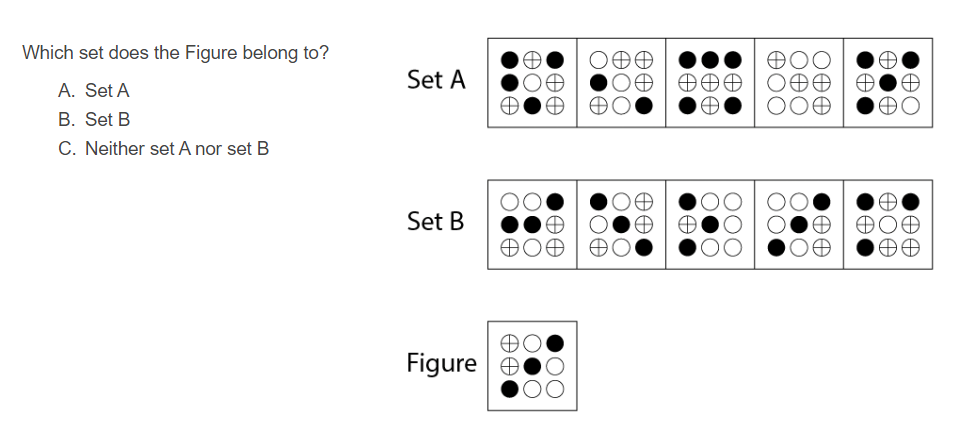Employers always want to recruit the right person for a job. An individual who wants to gain the skills for a position or who is not a perfect fit with the corporate culture frequently gets terminated. Then, you need to fill the spot again, and turnover costs and lost opportunities can be important. To make hiring decisions better and stay away from high job turnover rates, organizations frequently use ability testing. Companies also use these tests for endorsing and training. The objectives are to get the best people, with the best skills, in the best jobs, and this is possible with aptitude tests.
Conventionally, the process for assessing current or prospective workers has been subjective. Managers use their observations, feelings, life experiences, and judgments to evaluate applicants. For instance, when you interview an individual, you should try to be objective – but you must know that your personal beliefs and values often keep you from being totally objective.
Aptitude test provides a way to go beyond the subjective – and look for a more objective way to assess someone’s attributes. Then also, subjectivity is still part of the procedure, however, that is not always a bad thing. It would be irresponsible to completely ignore feelings and insights about others. However, perceptions can benefit from a little objectivity.
What are Aptitude Tests?
Aptitude tests are used to measure a person’s potential for success in certain areas. These tests are designed to assess an individual’s cognitive abilities, skills, and knowledge in different fields such as mathematics, verbal reasoning, problem-solving ability, and spatial awareness. Aptitude tests can be used by employers during the recruitment process or by educational institutions when assessing applicants for admission into their programs.
The Purpose of an Aptitude Tests
The purpose of an aptitude test is two-fold:
- It evaluates whether or not someone has the necessary skills required for success in a certain job.
- It provides evidence that they have those abilities at their disposal when needed.
This helps employers make informed decisions about which individuals will be best able to perform tasks associated with specific roles within their company or organization.
12 Types of Aptitude Tests
There are several types of aptitude tests that may be utilized depending on the job requirements.
1. Logical Reasoning Test

Logical Reasoning Tests measure an individual’s capacity for critical thinking skills such as problem solving. This type of assessment is often used in recruitment processes as it helps employers determine if a candidate has the necessary cognitive abilities required for certain roles within their organization. Questions typically involve interpreting information from diagrams or tables followed up with multiple-choice questions that require problem-solving skills like deduction or inference making based on what was presented previously.
2. Verbal Reasoning Test
Verbal Reasoning Tests assess how well someone understands written language through various question formats such as true/false statements; matching words with definitions; completing sentences correctly; identifying relationships between words etc.. The aim here is not only to gauge one’s understanding of English grammar but also their analytical thinking abilities which will help identify whether they have what it takes when communicating effectively in business settings both verbally and written down form.
3. Situational Judgement Test
The Situational Judgement Test evaluates how individuals handle hypothetical scenarios related to work tasks at hand – this could include decisions about ethical dilemmas faced during day-to-day operations within companies. It measures one’s judgmental decision-making process which allows employers get insight into personal values while assessing if candidates possess qualities suited towards specific job roles, e g leadership traits, communication proficiency etc.
4. Spatial Ability Test

The Spatial Ability Test (SAT) measures a person’s ability to visualize objects or scenes from different perspectives or angles. This type of assessment helps employers determine how well an employee can interpret data quickly and accurately when presented with complex problems. The SAT also evaluates problem-solving capabilities by evaluating a person’s capacity for mental rotation – being able to rotate images mentally without actually seeing them physically rotated on paper – as well as pattern recognition skills needed when using computer-aided design software programs like AutoCAD®.
5. Diagrammatic Reasoning Test

Diagrammatic Reasoning Tests assess analytical thinking through visual representations such as diagrams rather than words alone. It requires candidates’ understanding of relationships between shapes and symbols within a given image in order solve problems quickly under time pressure conditions – making it ideal for roles requiring technical knowledge across multiple disciplines including engineering, finance, IT, etc. By understanding how symbols interact with each other within the context provided by the diagram itself, businesses can measure potential new hires’ logical reasoning abilities more effectively than traditional written assessments do alone.
6. Psychometric Test
Psychometric Tests are designed specifically around job roles they target specific competencies related directly back towards particular job functions; allowing recruiters & HR professionals get an accurate picture about whether applicants have what it takes succeed at certain positions. These assessments use psychological theory & research methods analyze individual characteristics such personality traits, cognitive processes emotional intelligence among others; giving companies insight into candidate behavior beyond just academic qualifications experience levels listed their CVs.
7. Analogy Test
Analogy tests measure a person’s ability to recognize relationships between two concepts by providing pairs of related words or phrases. The test taker must then determine which word best completes the analogy (in this case “hot”). These kinds of questions require critical thinking skills and problem-solving abilities in order for the candidate to be successful on them.
8. Syllogism Test
Syllogism tests assess a person’s logical reasoning capabilities by presenting them with statements that they must evaluate against one another for it all make sense together logically – e g “If A is true B is false; if C is true D is false”. This type of question requires strong analytical thinking skills from candidates so they can understand how each statement relates back to each other correctly before coming up with their answer choice.”
9. Analytic Reasoning Test
evaluates someone’s capacity for abstract thought processes such as pattern recognition, identifying cause and effect relationships within data sets presented on paper or screen. These kinds of questions usually involve analyzing patterns among shapes, numbers, symbols. This type off aptitude testing helps employer get better understanding about applicant ‘s cognitive flexibility & mental agility.
10. Vocabulary Test
These assessments test your knowledge of specific vocabulary words that may be related to your job role or industry. The questions will usually require you to provide definitions for terms given by the assessor; they may also ask you about synonyms and word usage within sentences provided by them. This type of assessment is useful when employers wish to evaluate how well someone understands language-related tasks such as copywriting or customer service interactions where communication skills are essential elements in success.
11. General Aptitude Test
As its name suggests, this test evaluates general intelligence rather than any particular domain knowledge required for a specific job role. It typically consists of numerical reasoning, verbal reasoning, logical thinking, problem solving and abstract thinking questions which aim at measuring various cognitive abilities and helps predict one’s potential performance on future tasks based on past results.
12. Watson Glaser critical thinking test
Watson Glaser critical thinking assessment measures an individual’s capacity for logical thought processes by examining how they draw conclusions from facts presented in written passages. It evaluates five key components – inference, comprehension, analysis, deduction, evaluation. All essential elements needed when making decisions under pressure situations common within many workplaces today. This type of test allows organizations to make sure their workforce has adequate levels of reasoned judgement before hiring them into certain positions.
Benefits of Aptitude Tests
Aptitude tests can help employers make more informed hiring decisions. Here we look at some of the benefits that aptitude testing can bring to your workplace.
1. Objective Assessment
Aptitude tests provide objective data on an individual’s skillset which is valuable information during recruitment processes. This helps employers make informed decisions about who they should hire based on their aptitudes rather than subjective opinions from interviews alone. It also eliminates any potential bias that could occur if decisions were made solely based on personal impressions of candidates during interviews or other interactions with them prior to selection.
2. Improved Recruitment Decisions
An aptitude test provides employers with valuable insight into how well someone is likely to perform in certain roles, allowing them to make more informed recruitment decisions based on objective data rather than subjective opinions alone. By assessing individual strengths and weaknesses across areas such as numerical reasoning, verbal reasoning, and problem-solving ability, they provide recruiters with an effective way of filtering out unsuitable candidates early on in the process – saving time and money further down the line.
3. Increased Employee Engagement
With so much competition for top talent these days it is vital that employers are able use every available resource when recruiting staff members – including aptitude testing which allows companies evaluate prospective employees objectively before making hiring decisions. Not only does this ensure that suitable candidates do not get overlooked but also helps boost employee morale by demonstrating a commitment from management towards finding people who have both relevant experience AND potential for growth within their organization – something which will undoubtedly encourage higher levels of motivation among current employees too!
4. Improved Performance
By understanding what types of tasks each employee excels at through aptitude testing, managers can assign work accordingly. So, individuals are working in roles best suited for them which leads to improved performance overall within the organization. This also reduces stress levels among employees since they feel more comfortable and confident tackling assignments tailored specifically towards their strengths instead of feeling overwhelmed by those outside their area of expertise or interest level.
5. Reduced Training Costs
Pre-employment testing also reduces training costs by ensuring new hires already possess necessary skills before entering any type of program related to their job duties. This means less time spent teaching basic concepts while still providing quality instruction tailored specifically towards individual needs/skillsets. Additionally, it saves companies money because they do not need expensive outside consultants or trainers if all employees come prepared with adequate knowledge upon hire date!
Advancements in aptitude tests
The goal of an aptitude test is to forecast the ability to learn innovative skills. It represents a person’s capability level to perform a specific type of task. Aptitude tests can assess academic potential or career suitability and assess either mental or physical talent in a range of domains.
Conclusion
Aptitude tests are priceless tools in the hiring process, offering objective and standardized measures of candidates’ cognitive abilities and prospective job performance.
By knowing the different types of aptitude tests, their benefits, best practices for administration, challenges to think about, and effective integration tactics.
HR professionals and hiring managers can maximize their hiring processes and make good decisions that align with organizational objectives.
By embracing aptitude tests as part of a comprehensive selection strategy, organizations can recognize and entice top talent, enhance the efficiency of their hiring processes, and ultimately build high-performing teams.



